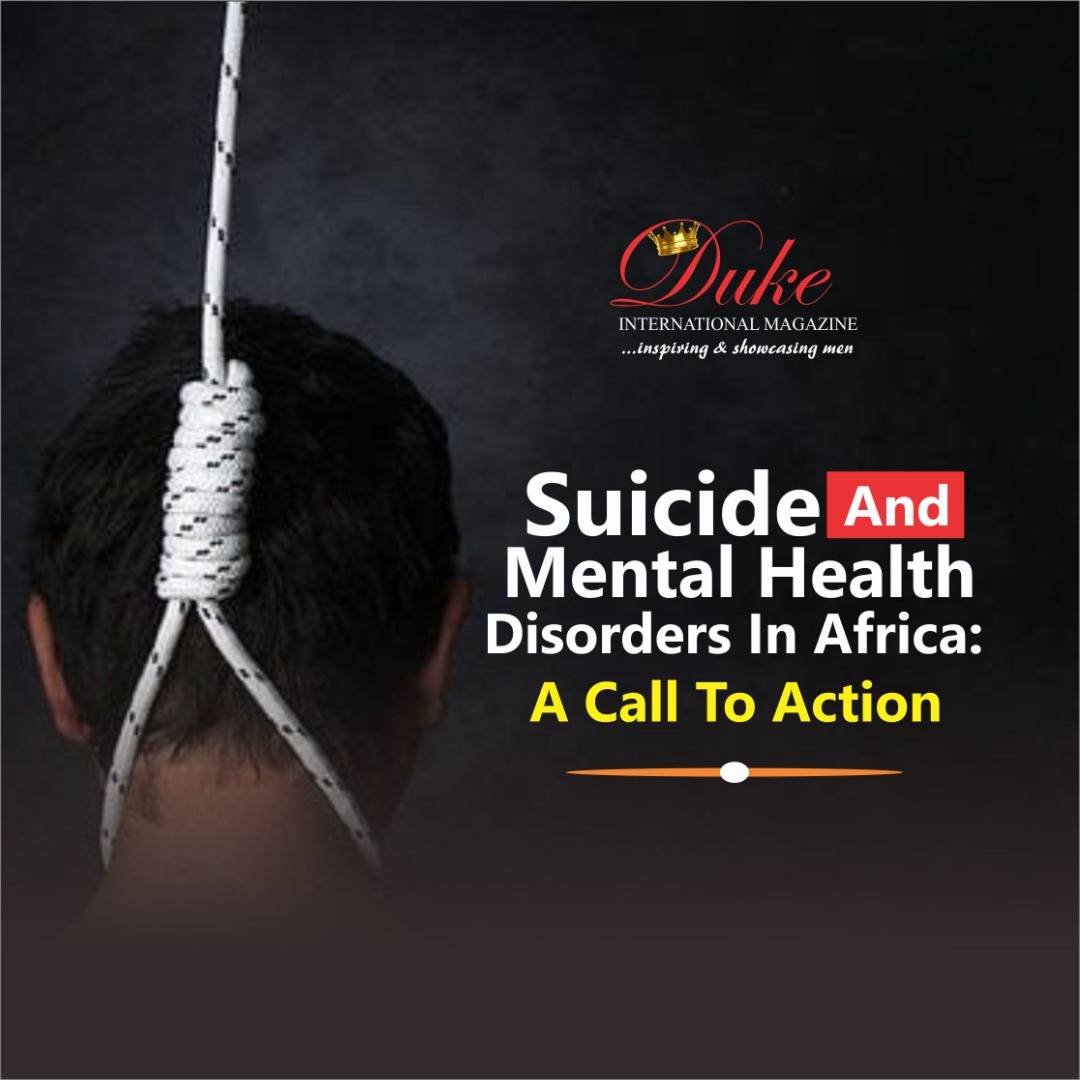Globally, Africa records the highest rate of suicides. However, raising awareness and helping to prevent mental disorders is a major step towards reducing these unacceptable levels and working towards an Africa where everyone has the chance to live a healthy life.
Across the world, over 700,000 people commit suicide every year and Africa is in no way immune to this nuance of depressive disorder as it is a major and growing issue. Today, the African continent has the highest rate of suicides globally at 11.2 per 100,000 people and this rises to 18.0 for men, although in some African countries it is very much higher. In a country like Lesotho, it has a surreal rate of 146.9 men per 100,000.
Alarmingly, for each suicide, there are a further 20 attempts. Despite this, suicides are preventable, but they remain the fourth leading cause of death of persons between the ages of 15 to 29.
Mental health problems are one of the primary causes of suicide, but others include bereavement, abuse, conflict, loneliness, and trauma. Shockingly over one billion people globally are living with one form of mental disorder and 81% of them live in low or middle-income countries.
There is also little doubt that both mental health problems and suicides have been exacerbated by the COVID-19 pandemic’s impositions of social distancing, isolation, and loneliness.
Mental health disorders are a common Non-Communicable Disease (NCD) and shouldn’t be tagged as a taboo or hidden away – they need to be better understood.
Prompt awareness and compassion must be raised for those with mental health issues while getting the message across that anyone can suffer from it. Indeed, it has the propensity of affecting one-in-four people at some point in their lives.
Starting a conversation about mental health shouldn’t be difficult and it’s already garnering acceptance.
Recently, some high-profile sports stars have been open about their mental health issues, including Naomi Osaka, who is ranked world number three in women’s tennis, and Simone Biles, who has won 32 Olympic and World Championship gymnastic medals. Senegalese actress and influencer Khalima Gadji has also spoken about her mental health issues.
In addition to suicidal thoughts, mental illness can cause a range of issues, including poverty, homelessness, social, medical, financial, and employment stress. In respect of the latter, mental health is one of the leading causes of sickness absence at work and costs economies billions of dollars every year.
Depression is the most common mental disorder, but there are many others including bipolar disorder, schizophrenia, dementia, and development disorders such as autism. The good news is that treatment and solutions are available for all these mental predicaments.
Of key importance in the fight against mental health is access to health care and social services capable of providing treatment and social support. Many mental health conditions can be treated effectively at a relatively low cost, yet the gap between people needing care and those with access to care remains substantial. This is particularly the case in Africa, where health care spendings, especially on mental health conditions, are far too low, both in reality and in global terms. Funding is urgently required to be mobilized.
Ideally, mental health care services need to be provided at several levels, from basic services to clinical care and be immediately available for specific, urgent mental health problems as part of the health response. These services need to be easily accessible in local communities.
Addressing mental health requires collaboration between the health sector, social welfare agencies, the judicial system, and the workspace.
Education has an additional role to play. It must also raise public awareness about mental health issues to reduce and eradicate discrimination, stigma, and human rights violations of those suffering from mental disorders.
We must also make everyone aware that adopting healthy lifestyles can help to prevent mental disorders. Both the harmful use of alcohol and physical inactivity are known to increase the likelihood of suffering from mental illness, as well as a range of other NCDs. For NCDs generally, it is important to have a healthy diet while also avoiding tobacco smoking.
Raising awareness and helping to prevent mental disorders is a major step towards achieving that vision and will also help reduce the unacceptably high levels of suicide. Together we are stronger, so let’s work towards creating the Africa that we want.

